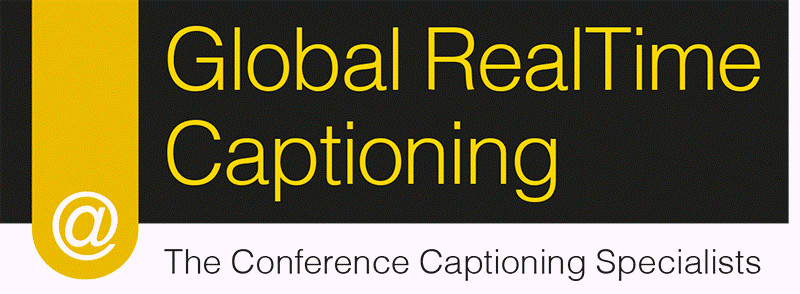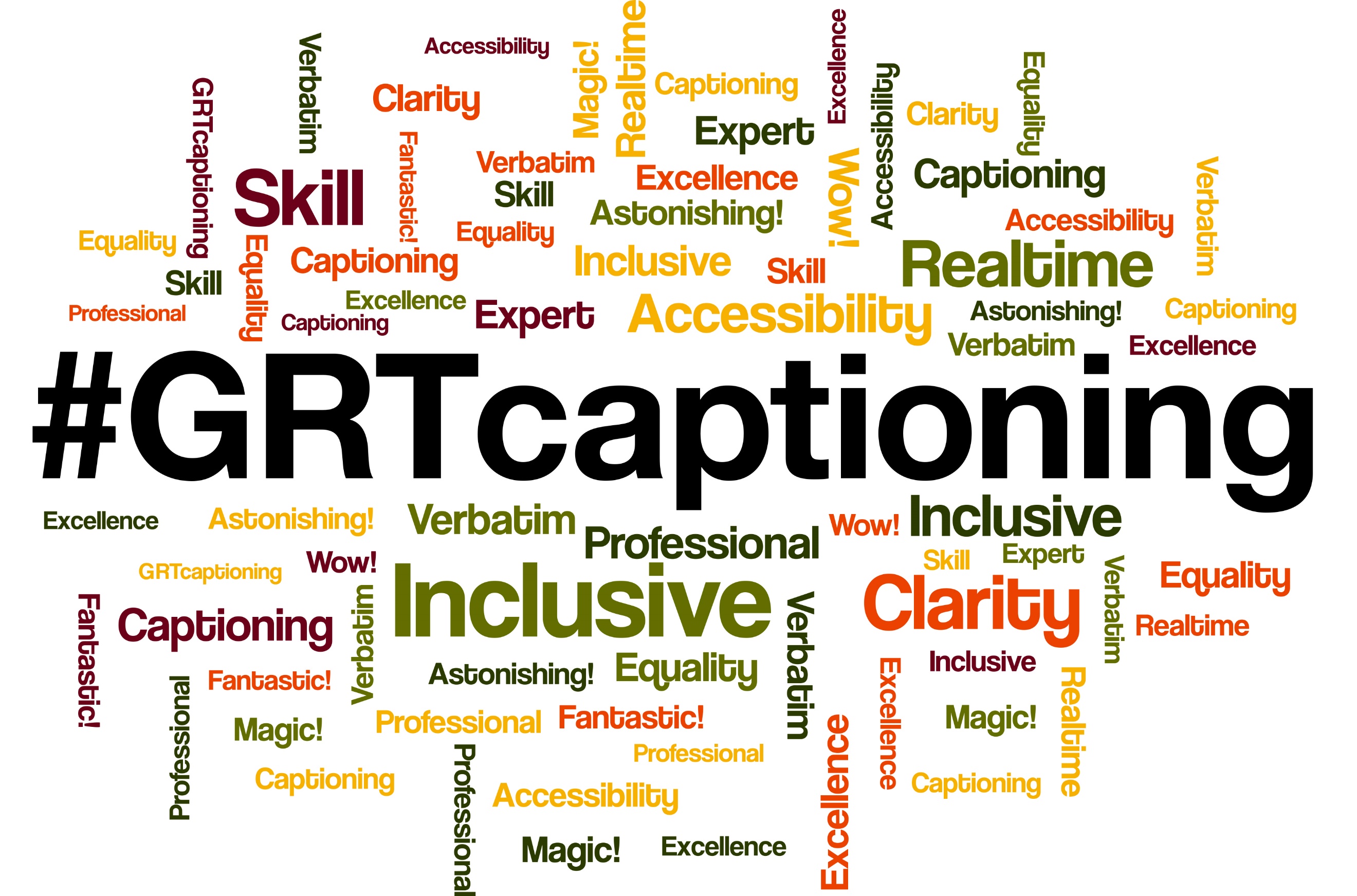Live Captioning
 |
 |
"Wow, so how does this work then?"
At conferences we often get asked how we do what we do, and how it all works. People see our live, realtime verbatim captions and are amazed, and often intrigued. They come and talk to us in the breaks, fascinated by our skills and our strange keyboards. Often there isn't enough time to talk to everybody as we also do need breaks, so here is an explanation for those who haven't had a chance to ask yet.
We write in phonetic shorthand. Each of the keys on our keyboards represent letters, and we hit combinations of these keys to form the phonetic syllables of words, a bit like playing chords on a piano. No, the letters are not visible on the keyboards, we had to memorise them during our training :) All the people who are part of our team are highly-skilled captioners with roughly 20 years experience each. They are among the best captioners around. Our average sustained speed is between 220-250wpm, with the
ability to write in excess of 300wpm in bursts if necessary.
220wpm is 3.6 words a second. Let's take a simple example - 'Hello, my name is. First, you have to listen to the words, and recognise them. Then you have to break the words down into their phonetic syllables, in this case 5 plus the comma, so 6 key strokes. You have to remember the key combinations for those syllables, (or the phonetic shortform you created for any new words possibly only the day, or even hours, before). Then you have to get your fingers in the correct positions over the keys and then you have to hit the right keys in the right order. Then you read the words as they come out on the screen, and if there are any mistakes you delete them and rewrite them correctly, while at the same time still listening to what the speaker has gone on to say so you can continue to write that next. This all happens in the space of 1 second.
Now, if the speaker has a strong accent this involves an extra layer of translation. As we write in the phonetic sounds of English, any variation of pronunciation requires us to translate the phonetic accent sound into phonetic English as well. A recent example was someone mispronouncing 'perseverance'. Instead of pur-se-veer-rance which is the phonetic pronunciation in UK English, he pronounced it pur-sevrance. So the mental process goes something like 'what?!' 'Pur-sev-rance?', knowing that if you wrote those phonetics it wouldn't come out correctly. Then, 'oh, perseverance!' Then also you have to do everything else listed above. Again, all in 1 second.
Over a 15 min period of writing, this process happens 900 times. In an hour, 3,600 times. No wonder we're mentally exhausted at the end of a day's work! We are constantly updating our lexicons with new words, and new phonetic shortforms and trying to remember all the new phonetic key combinations is a mammoth task. In the last week and a half, myself and my colleague provided captions at three conferences, each with very different subject matters. The first one was an international high-level scientific research conference on early intervention in teaching deaf children. The second one was a highlevel EU conference on fundamental human rights, and the third one was a tech conference all about WordPress. All three conferences had speakers from every corner of the globe with varying accents. We request copies of all presentation slides for every booking and go through them with a fine-tooth comb so that we can familiarise ourselves with all the jargon and language, and create new phonetic code entries for all of them. We spend hours doing this. Last year, for one two-day conference alone, I created 1,666 new phonetic shortform entries and then had to remember them all over the next two days of captioning. We are extremely busy, and cover extremely varied subject matters. Sometimes, we don't get given copies of presentations for various reasons and this means we cannot prepare our lexicon and phonetic shortforms in advance, and this makes our job intrinsically more difficult when new and unfamiliar, or accented words come up.
Sometimes, errors do creep in. We are only human after all! One recent example at the WordPress conference was that the words 'a solo piano work' came out as 'a so low piano work' which was then immediately corrected to 'solo'. In this particular sample, the word combination 'so low' is far more common in English than 'solo', and sometimes you have to make a choice with homophonic phrases as to how you have the key combinations programmed in your software. Also, in this particular case even though the word 'piano' came after it, the speaker was speaking very fast and the writer wouldn't have had time to make the distinction between 'so low' and 'solo' until after the key strokes had been written. It was immediately noticed, deleted and corrected and couldn't have been on the screen for more than a second.
We all thoroughly enjoy and even love our job. We love the challenges of new vocabulary, new areas of work and even, sometimes, we enjoy the challenge of a fast speaker :) Most of all, we are passionate about being able to make events more accessible and introducing new people to a process they may never have seen before.
Global RealTime Captioning
(+44) 07966 977676 \ (+44) 7967 362501
office@grtcaptioning.com





